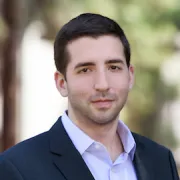Our doctoral program in the field of economic analysis and policy prepares students for research careers in economics. The program offers rigorous training and has several distinct advantages:
Low Student-to-Faculty Ratio
First, enrollment in the program is small. This encourages close faculty-student contact and allows students to become involved in research very early. Students work first as assistants on faculty research projects and, as their interests and skills develop, on their own research. Students often begin their publishing careers before completing their degrees.
Flexible and Innovative Program
Second, the program is flexible and innovative; students can draw on both the school’s and the university’s distinguished faculty. In addition to the faculty in the economics group at Stanford GSB and in the university’s economics department, students have access to faculty in political and behavioral sciences; accounting and finance; mathematics, statistics, and computer science; and many other disciplines.
A Top-Ranked School
Third, the program is part of a top-ranked professional school. This setting allows students to gain a deeper understanding of the actual processes of business decision-making and public policy formulation.
Preparation and Qualifications
Students who enroll in this program have a substantial background in economics and mathematics. They are expected to have, minimally, mathematical skills at the level of one year of advanced calculus and one course each in linear algebra, analysis, probability, optimization, and statistics.
The faculty selects students based on predicted performance in the program. Evidence of substantial background or ability in the use of mathematical reasoning and statistical methods is important. Most successful applicants had quantitative undergraduate majors in economics, mathematics, or related sciences.
In addition to evidence of ability and letters of recommendation, the faculty considers carefully the applicant’s statement of purpose for pursuing the PhD degree. The successful applicant usually has clearly defined career goals that are compatible with those of the program.
Acceptance into the program is extremely competitive. Admitted applicants compare very favorably with students enrolled in the top economics departments of major universities.
